Originally posted 2018-03-07 23:57:04.
Experience is overrated. Diving ability matters!
If you want to be a competent scuba diver, then you need to practice. Obvious, right? It seems not. Sadly, divers are hoodwinked. The lie is that improving diving ability will happen by gaining more diving experience. This article puts that fallacy firmly to rest.
Diving practice is neglected
Practice is grossly neglected in scuba diving. It’s not a performance sport and nobody wins a gold medal for scuba diving. As a result, most divers don’t see practice as an imperative. Put simply, there isn’t any motivation to do so. Practice for the purpose of skill acquisition isn’t identified as a gratifying benefit in itself.
Additionally, the only practice most divers undertake is limited to formal certification courses. Even then, many specialty diving courses are experiential, rather than performance development focused.
Divers take courses for a certification card, not for improving their diving ability
For many divers, the gratification of doing these courses is the prestige associated with a new certification card. Simultaneously, they view this as obtaining a ‘diving license’. Sadly, the diving license myth is about becoming entitled to push their diving beyond their actual diving ability limits.
Very rarely do divers enroll in training courses for the simple purpose of improving their diving ability. If they did, they wouldn’t invariably be choosing the quickest, cheapest, and most convenient courses available. Conversely, if performance development was their aim, they might be scheduling extra training time after qualification. Obviously, they’d want to practice what they learned; instead of rushing out immediately to undertake dives “at their new level”.
Why don’t scuba divers practice?
We universally accept that ‘practice makes perfect’. We readily acknowledge the benefits of practice in other disciplines; such as playing a musical instrument or sports performance. This common knowledge is rarely applied to scuba diving training.
The reason is that we, the diving community, created a perfect excuse to not practice:
- How many times have you heard the phrase “experienced diver”?
- How many times have you been told that your diving will improve “with experience”?
Diving experience is used to discount the value of good training
Diving experience is the dive training industry’s weak excuse. Most importantly, diving experience is not practice. Going scuba diving is not an effective method of improving skills. Experience, without practice, typically leads to degraded overall ability over time. Focusing entirely on diver experience absolves us from having to confront skill deficits.
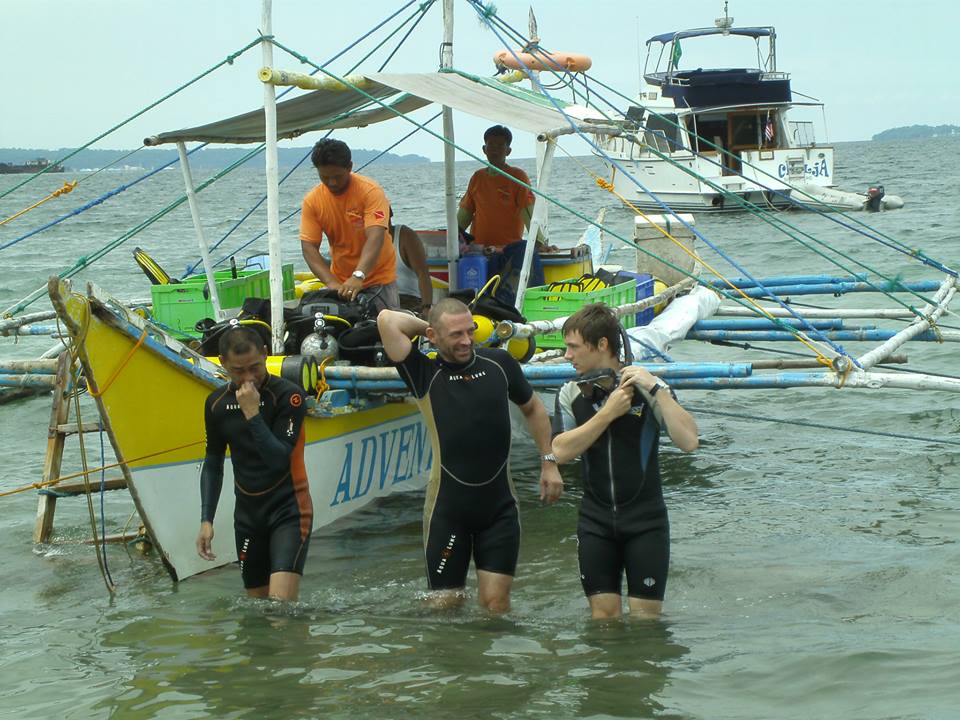
Labeling divers by their relative ‘diving experience’ is nothing more than the blinkers of delusion. At best, it’s an insult to those who improve their ability through hard practice. At worst, it’s the leading deception in a scam where divers lose their money on training courses and have nothing to show for it.
Nascar and Formula 1 drivers are lauded for their skill and ability. In contrast, my grandmother was an experienced motorist. See the difference?
Most agencies and instructors don’t remedy this delusion. Actually, they constantly reinforce it. You’ve heard: “Dive within the limits of your experience and training”. You rarely hear “Dive with the limits of your ABILITY”.
Is diving experience just an excuse for low-quality dive training?
For the conspiracy theory minded, there might be a leap to conclude that agencies and dive centers wanted to trap you in a loop of limited training and ‘experience’ diving. Sadly, some diving course doesn’t improve your ability. As a result, you go off to gain experience, hoping that a miracle will occur. Consequently, when it doesn’t, you go looking for more training. It’s a negative feedback loop that, at every stage, makes them money. It’s a cycle of training dependency.
That’s just for conspiracy theorists though. I personally don’t think the dive training system is deliberately engineered for nefarious purposes. At worst, I think the dive training industry has just become disorientated as to what they are trying to create. That being: able divers.
The route to scuba diving ability
The route to diving ability doesn’t demand an endless string of training courses. In ability-focused training, divers learn what skills are necessary and how to perform them correctly. They are educated on how to practice, review, analyze, and improve their skills independently.
Students are empowered to graduate training with a formula to subsequently develop their ability over time. After sufficient time to practice and gain the ability, they are ready to add further skills and abilities.
Why care about improving diving ability?
For most, scuba diving is an occasional or infrequent hobby. For some, it is a passionate obsession that they are committed to. Obviously, the quest for greater diving ability is easy to quantify in the passionate ones. So what factor should motivate casual divers to seek diving ability?
That factor is simply ENJOYMENT. That is, after all, why they scuba dive in the first place.
Enjoy becoming a better diver
I can’t imagine that golf is very enjoyable if you never got closer to par. Likewise, I don’t think I’d enjoy fishing if I never caught a fish. Similarly, I wouldn’t enjoy soccer if I couldn’t ever make a pass, score a goal or tackle the ball.
Sure… I might find myself sitting on a river bank relaxing on a sunny Saturday morning, or enjoying a leisurely walk across well-tended grass each Sunday. I might even enjoy hanging out with eleven of my friends for ninety minutes. That isn’t actually enjoying the activity itself. It’s merely enjoying the environment and the social factors.
Welcome to diving! People enjoy the underwater environment; and why not? They enjoy the social aspects of a shared experience. Of course, that’s valid too.
But do people actually ENJOY SCUBA DIVING?
What is enjoyable about scuba diving?
Does the average diver simply enjoy the pleasure of submerging themselves in scuba equipment? Do those divers attain satisfaction from observing their abilities progressively increase? Beyond the fake stimulus of high-fiving dive instructors deceitfully proclaiming “you’re awesome!”; do scuba divers really gain any personal pleasure from their improving abilities underwater?
Of course, they don’t. They enjoy seeing pretty fish or muddling around shipwrecks. The actual diving part is just a necessary evil that has to be endured if they want to enjoy being underwater spectators. The actual scuba diving aspect is the frustrating part of it because they lack the ability.
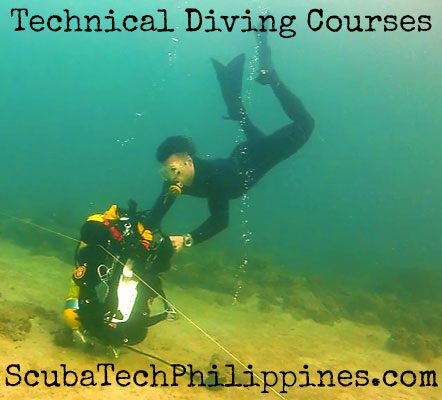
Is your diving course a bait-and-switch?
Prospective scuba divers are told they will “enjoy being weightless”. Is that promise fulfilled? Not often. Qualified divers struggle with buoyancy. They don’t get that ‘weightless’ enjoyment. Worst still, their lack of ability only detracts from their aquatic spectator activities. But hey, here comes the classic excuse, the newly certified diver has to first “gain more experience” before that simple, sublime, enjoyment will finally reveal itself. That is essentially just a bait-and-switch scam.
Training failure is not tolerated in other sports
Imagine paying hundreds of dollars to learn tennis from a ‘pro’. Having completed that course, and bought the expensive racket and proper attire, you were still unable to ever return a serve. Would you be content? If you paid a golf pro for lessons, would you be happy if they told you to just go away and play more golf? Of course, you would know that the expensive training failed to deliver what was promised.
Why do divers fall for the ‘gain more experience’ scam?
Scuba divers are prone to swallowing that pathetic ‘diving experience needed’ excuse for terrible training outcomes. Why are they so content to accept the blame for their woeful ability at the time of certification? Well… It’s because the fish are pretty and what they think they paid for was just a ‘license’ to go and see them.
Here’s the truth. Scuba diving should be awesomely enjoyable. Fish or no fish. Diving is about weightlessly gliding, the sublime experience of effortlessly moving through three dimensions, soaring aloft by unconscious whim, blissful suspension over the abyss perfectly relaxed and with utmost confidence. Being underwater should be idyllic and meditative. Diving should be a transcendent experience.
Do you have the ABILITY to truly enjoy diving?
Embarking on a quest for expertise in scuba diving training opens Pandora’s box of delights.
Why diving ability practice is critical
Assuming we haven’t invested our pursuit of diving ability in some roguish notion of an indefinable scale of ‘diving experience’ acquisition, we should be wholeheartedly concerned with improving our ability as scuba divers.
Buoyancy control, trim, situational awareness, air sharing, emergency ascents, gas switches, deco stop stability, frog kick, CCR bailouts, compass reciprocals, DSMB deployment, etc, etc, etc. These are all SKILLS. They are critical abilities. They are the necessary competencies for safe, comfortable, confident diving at your level.
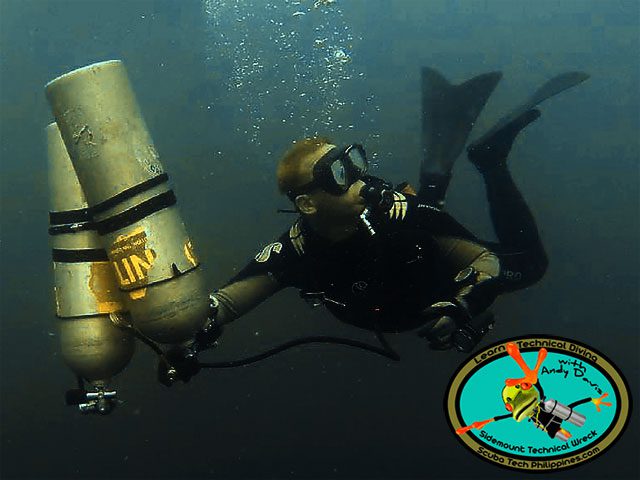
Scuba diving ability doesn’t improve by magic
Focusing entirely on ‘diving experience’ assumes that we will efficiently develop all of these necessary skills simply by doing more routine diving. It’s a flawed and illogical notion. It’s wishful thinking.
- How many air donations do you conduct on a typical dive?
- How many emergency ascents do you conduct in 100 routine dives?
For the vast majority of scuba divers, the answer is few or none. Those skills rarely arise on routine dives.
Diving skills practice sessions improve ability because they enable far more repetition of specific skills; compared to the skills applied to a vastly higher amount of routine dives. Practice sessions accelerate ability development because the diver is entirely focused on specific skill outcomes and is critically cognizant of their performance.
How much skill practice happens on a normal scuba dive?
On a routine 60-minute dive, you might deploy a DSMB once. Your goal would be no more than to get the DSMB to the surface without catastrophe. You wouldn’t get feedback on your method. Nor are you likely to critically assess your performance of the skill and its subcomponents.
In contrast, in a 60-minute DSMB practice session, you might deploy your DSMB more than a dozen times. You’ll be focused on HOW you deploy the DSMB. You will break down every aspect of the skill, noting where errors occur and improvements can be made.
Experience is a grossly inefficient method of improving ability. Routine dives don’t provide a sufficient frequency, or focus on, the skill performance needed to trigger real improvement. Some critical emergency skills are absent altogether in routine, incident-free, dives. Those unused skills diminish rapidly.
Deliberate practice for diving ability
There have been many decades of research into the pursuit of diving ability. That research has encompassed scientific studies on expertise development within the fields of athletics, business, government, and music.
The prevailing theories subscribe to the notion that expertise is little to do with innate talent and everything to do with hours of practice.
Psychologist Anders Ericsson devoted thirty years to research before collaborating with Robert Pool and publishing the book “Peak: Secrets from the New Science of Expertise”.
In that book, he expostulates a concept that expertise stems from 10,000 hours of practice. In particular, Ericsson and Pool specify that the TYPE of practice is what differentiates experts from the inexpert masses. Furthermore, the wrong type of practice can lead to the erosion of ability.
Ericsson and Pool define the right sort of practice as “Deliberate Practice”. Deliberate practice must involve two key aspects:
- A focused effort to improve a specific skill.
- Immediate feedback from someone who understands exactly what improvement looks like.
The importance of those two aspects is held in the specific definition of the words used. I will outline those definitions to help prevent any misunderstandings:
Focused diving ability practice
“Focused” means that the diver is totally concentrating on the skill being performed. No distractions or ulterior motives. The activity conducted is the purpose of conducting the skill. The skill isn’t a component of another primary activity or goal. In reality, focused skill development should be mentally tiring. Ericsson and Pool state that even an “experienced expert” wouldn’t be able to sustain a sufficient level of focus for more than four hours a day.
Specific diving ability practice
“Specific” refers to the identification of a particular component of an overall skill. This would include using predetermined drills to isolate and develop core aspects of a greater ability, task, or protocol.
Immediate feedback during diving ability practice
“Immediate Feedback” refers to accurate critique being received promptly after the skill is completed. As an example, in American football, that’d require each pass, tackle or goal kick to be analyzed and debriefed on the spot. It wouldn’t mean generic feedback, such as saying “good game!” postponed until the game concluded.
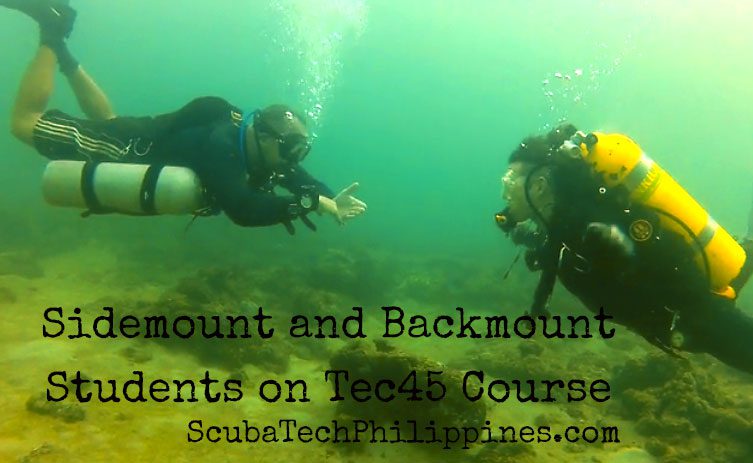
Going scuba diving is not an effective practice
Ericsson and Pool are vehemently clear when they explain that simply “doing the activity” is neither focused nor specific enough to be categorized as deliberate practice. Unspecific, unfocused activity won’t be sufficiently rigorous to enable true ability improvement. Delayed feedback does nothing to help remedy errors and enable improvement through subsequent repeated skill performances.
It takes an expert to develop diving ability in others
I should also comment about “someone who understands exactly what improvement looks like”. The obvious example of this would be an instructor, coach, or mentor. That’d probably be a person at a higher level of ability; as this enables an understanding of how the skill needs to be performed. It would certainly be a person who possessed an unflinching attention to detail and possessed the abundance of moral character necessary to provide accurate, if not flattering, feedback.
Self-training for diving ability. Are you a competent autodidact?
In some, rare, cases it might be the individual themselves. The practitioner might have access to ‘role model’ demonstrations and examples of the skill being practiced; for instance, video tutorials. They might also possess the ‘perfectionist’ qualities necessary to demand sufficient attention to detail and honest self-appraisal for effective internal feedback. All that remains is the need to observe the skill performance. A video with instant playback provides that capacity.
Video your dive training for self-critique
So, all that’s needed for effective practice is a GoPro camera, an internet connection to YouTube… and a sincere commitment to perfection bordering on Obsessive Compulsive Disorder. Failing that, simply hire a ‘professional perfectionist’ to enable your effective practice and development.
Training that fails to deliver diving ability results
It is here, I must lament, that many diving instructors fail to deliver the goods. Rather than perfectionism, their area of expertise is actually in entertaining students. Sadly, they masquerade as motivators. Consequently, all those insincere high-fives and vapid encouragements really just serve to enable students to ignore the nagging voices in the back of their minds that question the vast gulf between expectations and reality in the actual development of their diving ability.
Clowns entertain, coaches crack the whip
For that reason, if you want to develop a real ability, pass over the clowns and appeasers. Instead, find yourself a straight-talking tyrant. Seek out an instructor who won’t put up with any of your nonsense. Anything less is a decision to accept mediocrity.
Hiring an entertaining instructor is more fun in the short term. However, that short-lived gratification will deprive you of the opportunity to develop. As a consequence, your enjoyment of diving will remain limited.
The theory of ‘Deliberate Practice’ illustrates that “diving experience value” is actually of little value at all. Not if we are seeking to develop real diving ability and striving towards expertise.
Reshaping The Brain
Ericsson and Pool also theorized that conducting deliberate practice caused changes in an individual’s thought processing. They used the term “reshaping the brain”. It was a literal term, as they noted from experiments that legitimate world-class experts displayed brain area growth linked to the discipline they performed. For instance, expert violinists grew more brain mass in the region of the brain responsible for controlling the left hand.
IQ doesn’t determine what you can learn
Ericsson argued that the ability to reshape the brain was independent of general IQ. Furthermore, it showed specific neural connection adaptation to improve specific competency requirements. Again, this is a trait identified in those who conduct deliberate practice, not those who simply gain experience doing an activity.
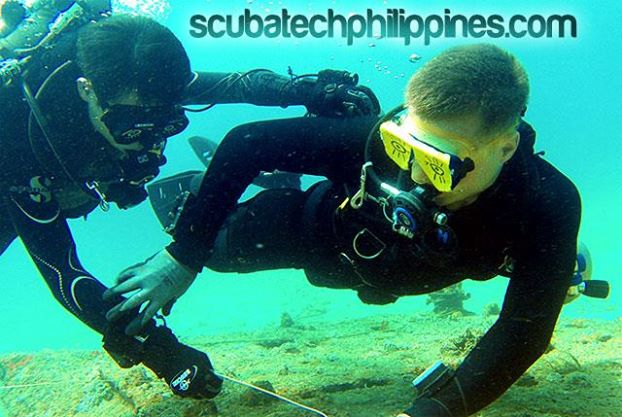
Is achieving high levels of diving ability realistic?
I can guess what you are thinking.
It might be something along these lines: “Andy is some sort of hardcore diving guy that expects people to devote 10,000 hours to dedicated, grueling practice with a tyrannical and uncompromising coach. I can’t afford the time or financial commitment necessary for that. I don’t even want to do that. Having seen what it entails, I now have no great desire to attain world-class diving ability. Diving is my hobby, not my obsession”.
You aren’t wrong to think along those lines.
Realistically, all things are best in moderation. Few people will spend 10,000 hours practicing anything, let alone diving skills. For that reason, Ericsson and Pool’s definition of world-class expertise is unobtainable to all but a select few. Honestly, competing in the Olympics, becoming a chess grandmaster, performing as a prima-donna ballerina, or playing the lead violin in a capital orchestra is way beyond the motivational spectrum of most of us. Likewise, so is becoming a world-class expert diver. And that’s perfectly ok.
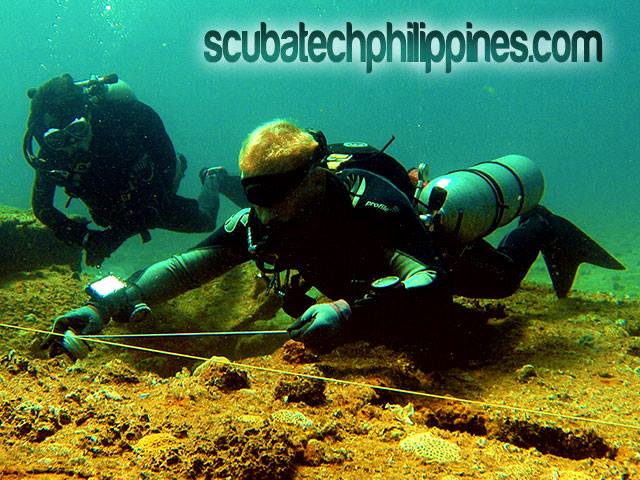
It’s the journey to diving ability, not the destination that matters
We just want to actually improve our diving, right? Furthermore, we want value for the money we spend on training. Overall, we’d like the satisfaction of seeing tangible ability improvement over reasonable timescales. In short, we’d like to be rewarded with genuine ability gains for the time and money that we can devote to diving training.
Experts show us how diving ability is gained
What remains constant is that we can develop real diving ability by emulating the methods of those who strive for expertise. For that reason, forget about doing instant-gratification courses and the aimless pursuit of experience.
Instead, devote a little time to deliberate practice. Keep it real. When you have time to train, make sure you aim for perfection. Also, if you don’t know where to aim, find a legitimate expert to aim you in the right direction. Ultimately, the more effort you put into your diving ability, the more enjoyment you’ll reap as a reward.
Thankfully, a little amount of deliberate practice goes a very long way, especially with fundamental skills. A handful of hours conducting deliberate practice will stimulate more ability than a vast amount of time spent sight-seeing on reefs and wrecks.
I cannot stress enough how undertaking deliberate practice rewards huge ability development. Especially so, even for a modest commitment in time.
A personal account of practicing to improve diving ability
As I write this article, I’m still a long way short of the 10,000 hours predicted to make me a world-class expert in scuba diving. Whilst I have done more than ten thousand dives over three decades, only a moderate fraction of that was deliberate practice.
Additionally, I was a recreational diver at the outset. As such, I wasted time trying to gain ‘diving experience’ and doing insipid diving certification courses. Regrettably, I developed little proficiency during that time.
The first encounter with an expert changes the path
It was only when I started technical diving that I began learning what real diving ability means. I thank Mark Powell for that awakening. His expert training provided me with a road map for future development.
As a result, when I later became a tech instructor, I understood the benefits of routine deliberate practice. Enlightenment took years, but the more I understood, the more effective my training became.
The opportunity to dive enough to pursue diving ability
My full-time job for the last decade has been teaching advanced-level diving. As a result, I was privileged to dive with some truly expert divers over the years. For that reason, I learned to understand what performance development means. Additionally, I was fortunate to work in an environment that allows me to conduct frequent deliberate practice.
Whilst teaching students, day in, and day out, every skill I’ve demonstrated was also my own deliberate practice. I became a ruthless self-critic, wanting to emulate those with greater diving ability.
Learning diving ability from teaching
I studied the finer aspects of world-class diving ability. Competencies are broken down into small details, practiced in isolation, and then stitched back together to function like clockwork. I also constantly learned from my students and fellow divers. It helped me comprehend the details of common errors and devise effective drills to rectify them.
For the abilities I wanted to develop that go beyond what I can practice ‘on the student’s dime’, I found the ‘alone time’ necessary to focus on the specifics. That was mostly through devoting hours in the shallow water and then by solo technical /overhead diving; during which I’d analyze and critique every aspect of my performance in real time.
The temptation to disassociate from diving ability
Again, you might be thinking “….but Andy is hardcore”.
Yeah, I probably am. My brain may have started to reshape itself a little over years. The ‘high-five’ node may have indeed shrunk to make more room for the ‘buoyancy and trim’ nexus. I sincerely enjoy the results of what I do. Improvement gets addictive.
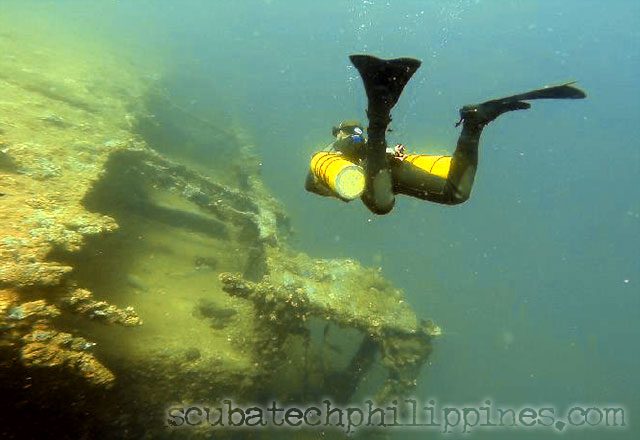
As an ethical and results-focused diving instructor, what I noticed is that when I conducted deliberate practice sessions for my students their abilities improved rapidly. I got impressive results in a short time if students were prepared to work hard in class. Students’ acquisition of ability was far more profound than other students who are given only ‘experience’ or don’t receive ‘focused’, ‘specific’, and immediately critiqued practice.
Needless to say, training results were light-years ahead of those budget-focused diving courses whose instructors deceitfully accelerate students through the bare minimum standards of skills training; riding a wave of false-positive performance feedback. And then… “go get yourself some experience”.
Start practicing to improve your diving ability and stop chasing experience
With respect to developing diving ability on qualification courses, you truly get what you pay for. It’s HARD work for the instructor who provides students with deliberate practice. As a result. it’s not unforgivable for people who work HARD to expect more financial compensation than people who don’t work hard.
If you pay peanuts, expect to get monkeys
Additionally, it’s also understandable that instructors who obtain tangible ability results for their students should charge more than instructors who don’t. Of course, let’s not forget that deliberate practice takes longer than superficial practice. Typically, longer courses cost more.
Recognize value for money in dive training
Whilst it may take thousands of deliberate practice hours to obtain ‘world-class diving ability’, just a few hours can revolutionize your diving ability. Find an instructor who can introduce you to that standard of training and it’ll change your diving outlook forever. You’ll improve your diving ability consistently thereafter. In the longer term, you’d never regret the initial outlay of money and hard work.
Remember it is performance-related pay
Overall, the instructor who gets results for students is the one who’s committed to substantial deliberate practice over the course of their own development. They’ll do more to improve your ability in days than a string of non-practiced instructors and ‘experience dives’ could do in a lifetime.
About The Author

Andy Davis is a RAID, PADI TecRec, ANDI, BSAC, and SSI-qualified independent technical diving instructor who specializes in teaching sidemount, trimix, and advanced wreck diving courses.
Currently residing in Subic Bay, Philippines; he has amassed more than 10,000 open-circuit and CCR dives over three decades of challenging diving across the globe.
Andy has published numerous diving magazine articles and designed advanced certification courses for several dive training agencies, He regularly tests and reviews new dive gear for scuba equipment manufacturers. Andy is currently writing a series of advanced diving books and creating a range of tech diving clothing and accessories.
Prior to becoming a professional technical diving educator in 2006, Andy was a commissioned officer in the Royal Air Force and has served in Iraq, Afghanistan, Belize, and Cyprus.
In 2023, Andy was named in the “Who’s Who of Sidemount” list by GUE InDepth Magazine.

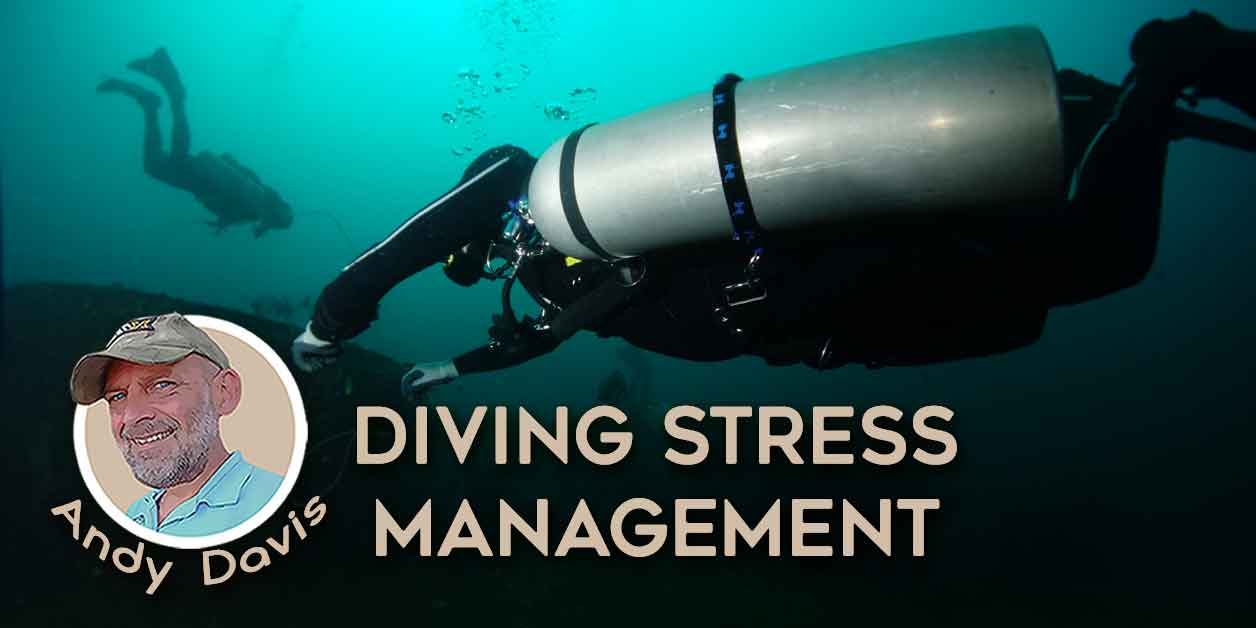
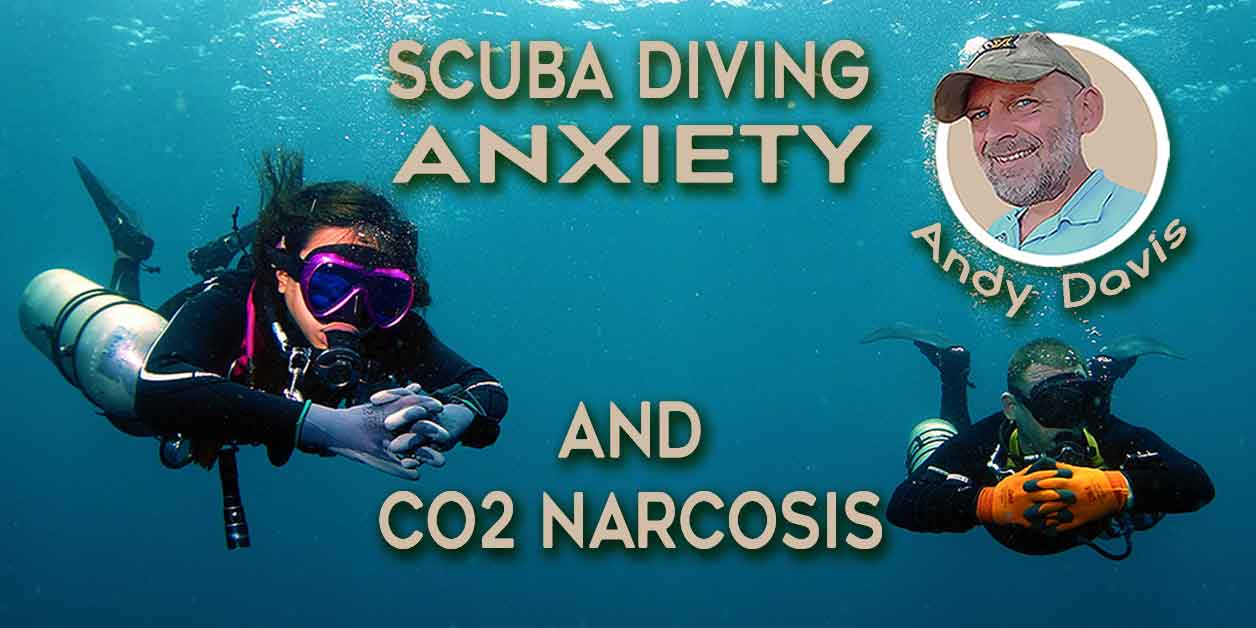
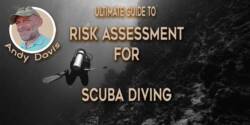
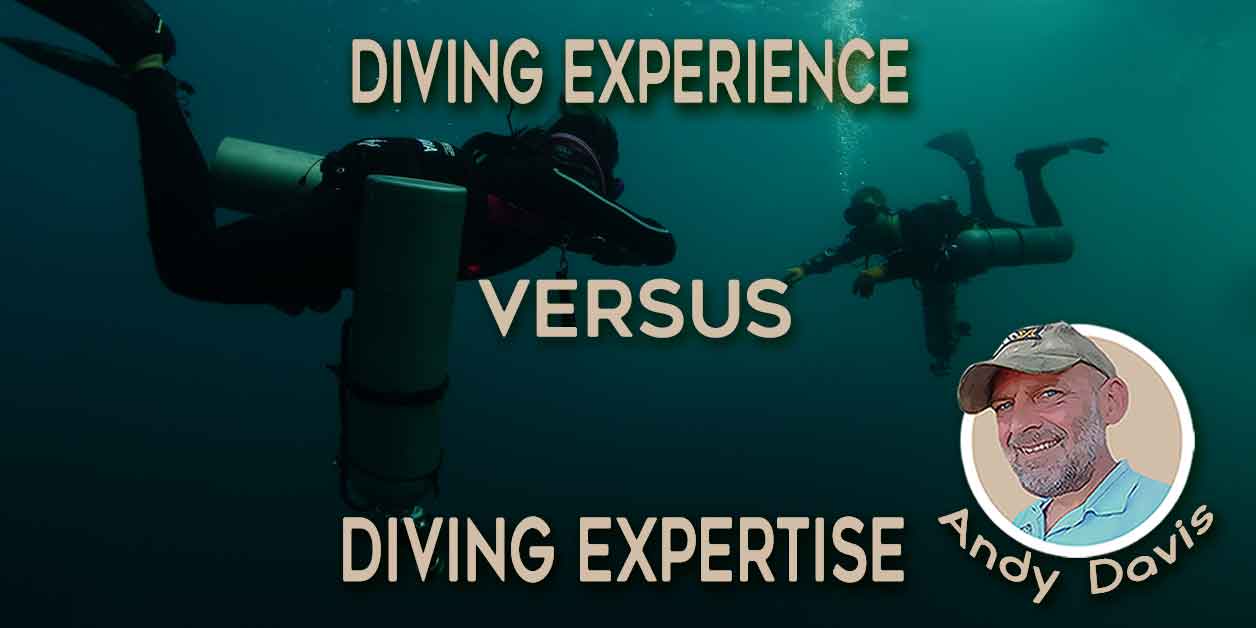
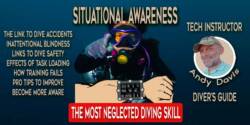
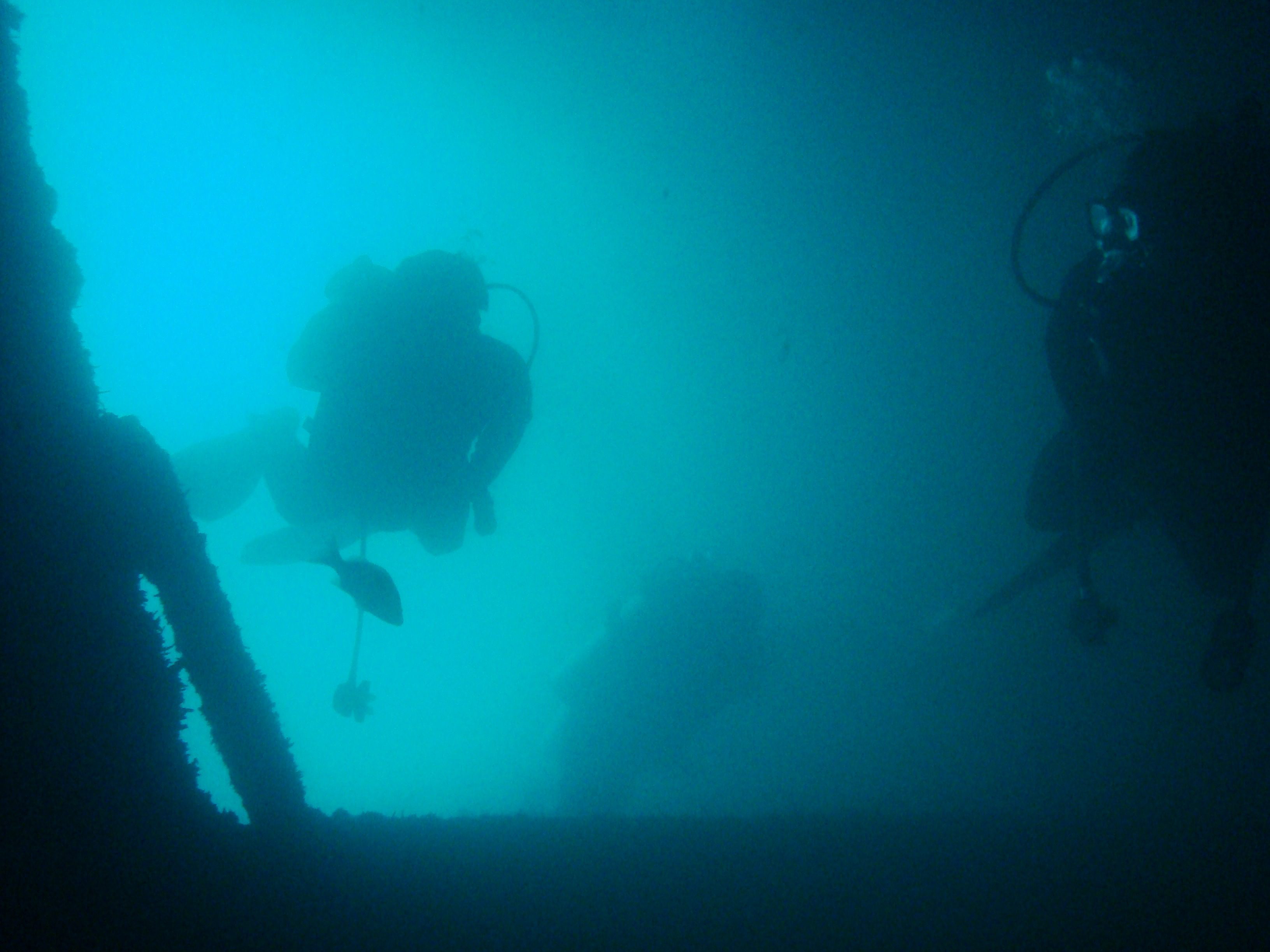
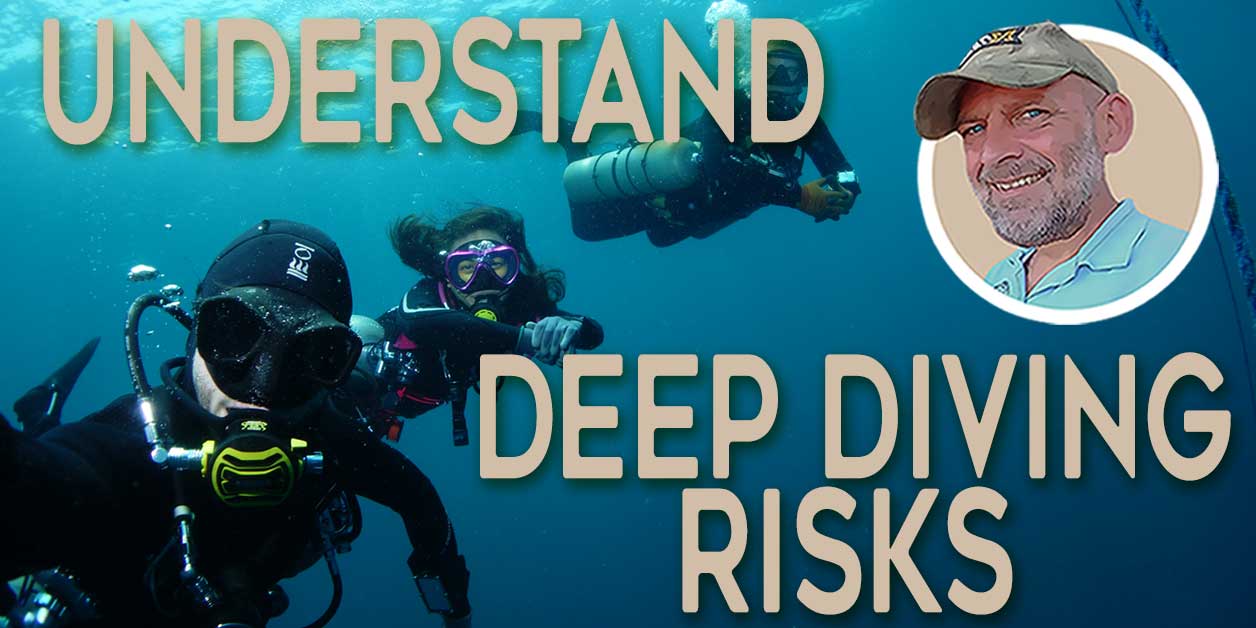
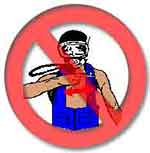
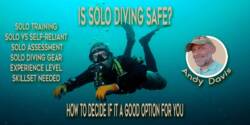

the level of diving ability is crucial factor in ensuring and safe and enjoyalbe underwater experience
Thanks for sharing useful information.
A very good article. It voices thoughts and attitudes that I’ve had for many years
Hopefully I’ve been effective in hammering them into my students. I like to think that I have.
Much of my time as an instrucor has been taken up with remedial training of ‘untertrained’ recreational divers, who were churned out by the commercial recreational traiing industry and told that they were ‘awesome’ when in fact they were bordering on suicidal.
regards
Tony
Retired BSAC & PADI Instructor – Also now a retired diver. :(